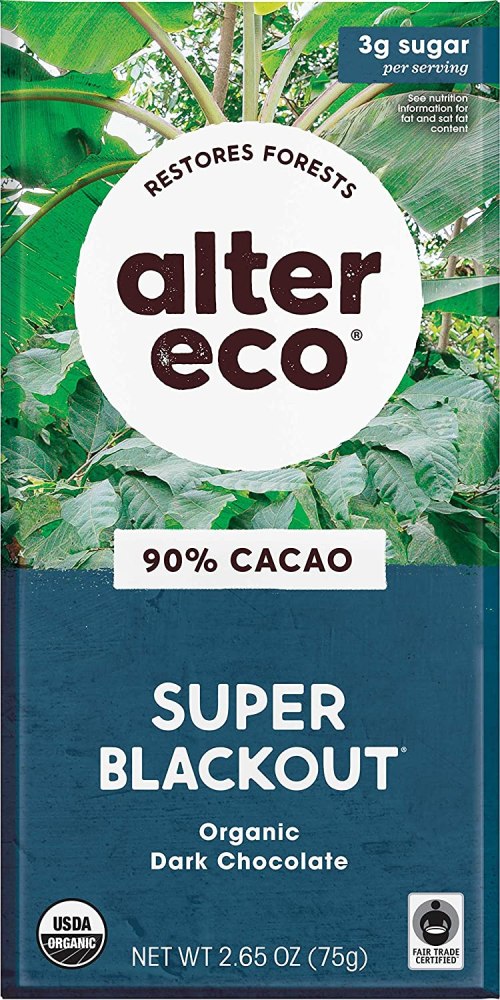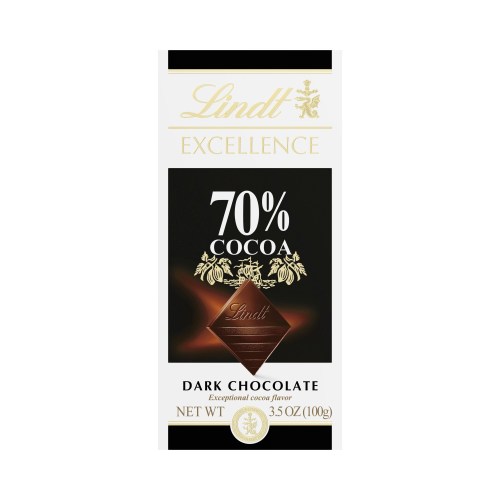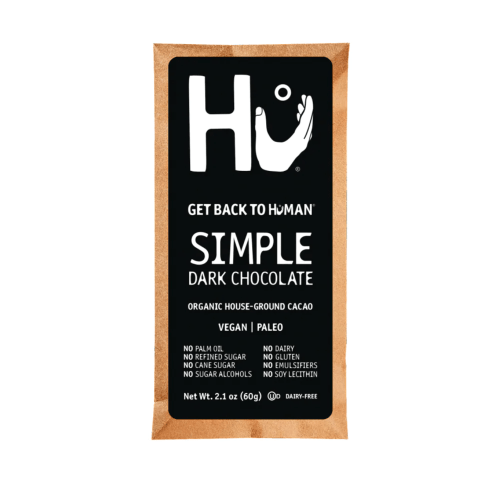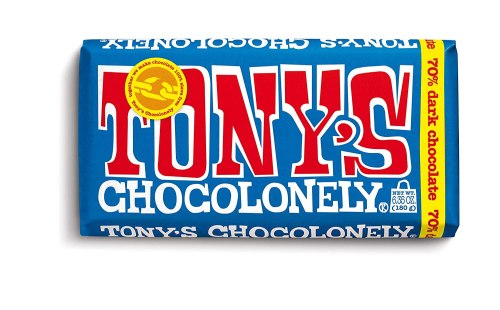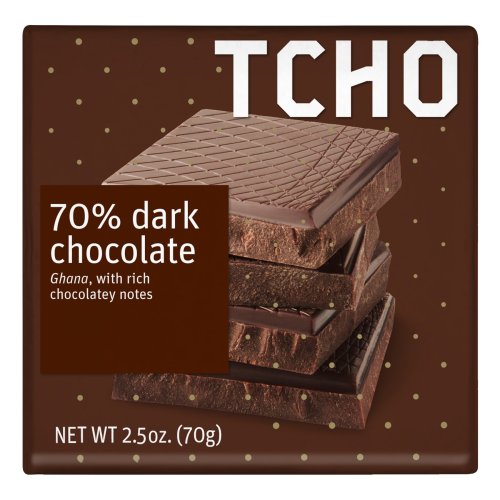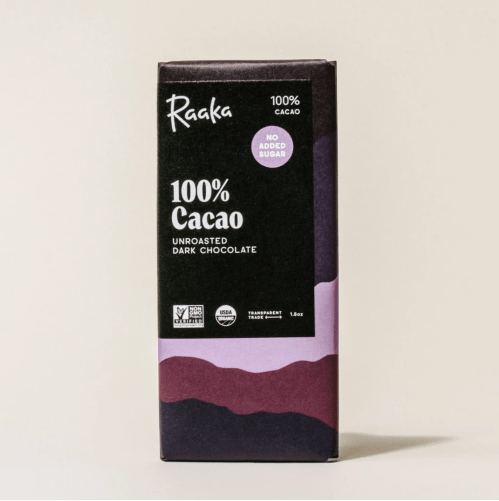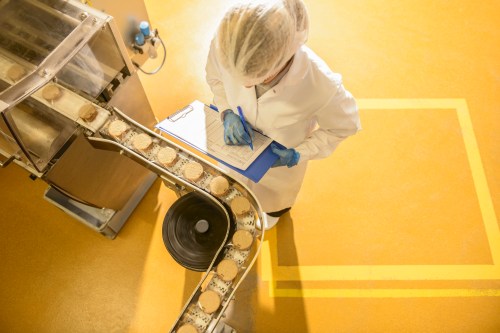Our editors independently select these products. Making a purchase through our links may earn Well+Good a commission
Even if you consider yourself a chocolate fangirl (it me), identifying top-notch bars hailing from the rich and flavorful cocoa bean can be tricky at first. Given that the chocolate market is expected to grow by almost five percent over the next six years, it stands to reason that we’ll soon be seeing even more beautifully-wrapped bars on store shelves. And while an abundance of chocolate options hardly constitutes a crisis, learning how to read a label will ensure you add the most nutritionally dense and ethically-sourced—aka, the best dark chocolate option—to your cart.
Experts in This Article
Aja Gyimah, RD, is a Toronto-based registered dietitian and the founding RD of kuudose.
Kelly Plowe is a plant-based dietitian living in Los Angeles.
One obstacle? The chocolate industry—particularly the major manufacturers that dominate the market—has a tainted reputation thanks to its use of child labor (and continued failures to reform), taking advantage of lax regulations, and harming the environment in the production process. So when you’re on the market for something sweet, the product’s sourcing really does matter as much as the antioxidants in a given bar. Below, you’ll learn how to select chocolate you can feel good about buying and enjoying.
The health benefits of dark chocolate—and how much to eat
“Chocolate contains flavonoids, which are antioxidants,” says Toronto-based dietitian, Antioxidants protect our cells, but flavonoids may also play a role in reducing inflammation, as well as aid in preventing cardiovascular disease, diabetes, and cancer.” Research also indicates the dark chocolate may help alleviate depressive symptoms. And as if all those mental and physical health benefits weren’t doing enough, dark chocolate is also rich in iron, copper, magnesium, zinc, and phosphorus—nutrients your body absolutely needs to function properly.
Here’s more intel about the benefits of cacao, which makes up the foundation of all dark chocolate:
As for the serving size you need to eat to reap these chocolatey rewards, Gyimah says that one serving should generally offer about 15 grams of carbohydrates. (So if you picked out Trader Joe’s Dark Chocolate Lovers Chocolate Bar 85 percent Cocoa, two-thirds of a bar would account for one serving.)
How to choose the healthiest and most ethically-sourced chocolate bar
Okay, so now that you know why dark chocolate merits a sizeable stash in your pantry (and desk and freezer), here are a few criteria to spot on the label before you add an item to your cart.
- 1.The percent of cacao in the bar: “When you’re at the grocery store, look for dark chocolate that is at least 60 percent cocoa. The higher the percentage, the more flavonoids,” says Gyimah.
- 2.The sugar content: Generally speaking, a quality bar of dark chocolate won’t contain very much sugar. (In fact, 100 percent dark chocolate won’t contain any at all.) While how much sugar you’d like in your bars depends on how much bitterness you enjoy in your palette, you should generally look for picks that contain fewer than five grams of added sugar per serving. (The American Heart Association recommends limiting your intake of added sugar to about 25 grams a day.)
- 3.The ingredients in the bar: Los Angeles-based dietitian Kelly Plowe, RD, advises counting the ingredients on your bar of chocolate. Ideally, there should only be a few, including cocoa beans, cocoa butter, and sugar. Ideally, cocoa beans should always be listed first.
- 4.The climate practices of the company: “An added check-mark for me is if the chocolate is made by a brand that supports regenerative, climate-positive farming to make it a more sustainable choice,” says Plowe. One way to identify the environmental friendliness of a bar is by looking for a “Climate Neutral” label, which indicates that a brand is working toward reducing or offsetting its carbon emissions in some way. (The “Rainforest Alliance” seal is also worth looking out for.) Beyond that, go to the brand’s website, do your research, and make an educated decision from there.
- 5.The production practices of the brand: To make sure you’re purchasing an ethically-sourced bar of chocolate, look for the “Fair Trade Certified” seal, which indicates that a product has met various social, economic, and environmental standards. Also, do your due diligence and head to a brand’s website to read about where its cocoa beans come from—and if it is even capable of sourcing its beans. It’s also worth noting that bars that use sustainable, ethical practices will cost more money than, say, a Snickers bar.
10 chocolate bars that dietitians and chocolate-enthusiasts love
1. Alter Eco Super Blackout (90 percent cacao), $40 for a 12-pack
A favorite of Plowe’s, this 90 percent dark chocolate is Fair Trade, organic, and is grown with dynamic agroforestry methods that put the environment first.
Shop now: Alter Eco Super Blackout (90 percent cacao), $40 for a 12-pack
2. Lindt Excellence Dark Chocolate (70 percent), $4
If you’re perusing the aisle of the drugstore, Lindt is Gyimah’s chocolate of choice. The company has a robust sustainability pledge, including a farming program that traces cocoa beans back to their origins so the brand can support farmers at a local level.
Shop now: Lindt Excellence 70 percent chocolate, $4
3. Hu Chocolate Variety Pack (varies), $45 for an 8-pack
This dark chocolate variety pack includes a flavor for every mood, including almond butter, crunch mint, quinoa, and more. This 8-pack will get you through the better part of the winter—and you can feel good about where its ingredients come from.
Shop now: Hu Chocolate Variety Pack, $45 for an 8-pack
4. Tony’s Chocolonely Dark Chocolate (70 percent), $5
One Amazon reviewer declares this chocolate “good enough to not share” and I think that’s pretty telling. Tony’s is also Fair Trade and B Corp-certified, and the whimsical packaging makes it a thoughtful gift to anyone who could use a little extra sweetness in their life.
Shop now: Tony’s Chocolonely 70 Percent Dark Chocolate, $5
5. Theo Organic Pure Dark (85 percent), $4
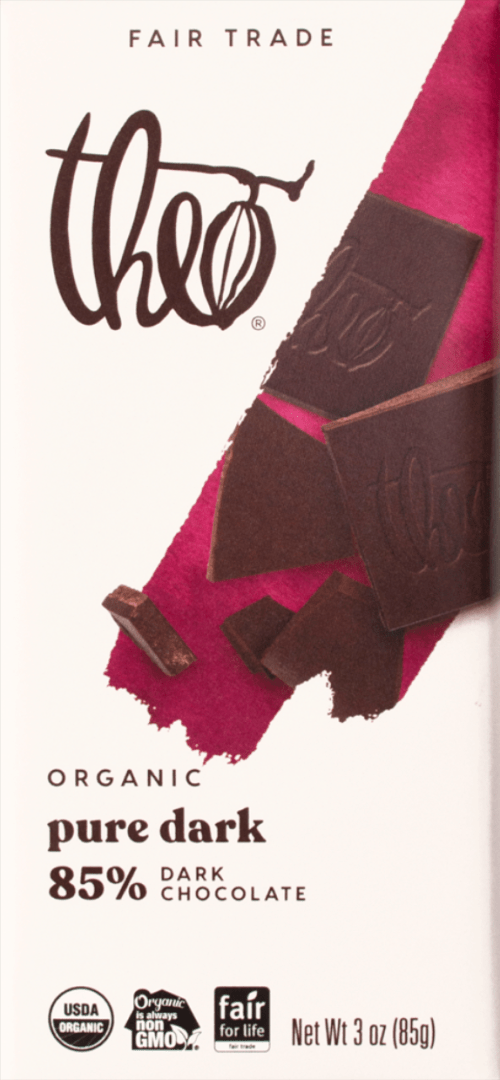
Theo’s Fair Trade chocolate is straightforward and delicious.
Shop now: Theo Organic Pure Dark, $4
6. TCHO 70 Percent Dark Chocolate, $56 per 12-pack
TCHO’s dark chocolate comes by way of Ghana and is single-origin (meaning, the cocoa beans come from one specific place, rather than multiple).
Shop now: TCHO 70 Percent Dark Chocolate, $56 per 12-pack
7. Raaka Unroasted Dark Chocolate (100 percent), $6
Raaka’s photo-ready packaging isn’t all that’s notable about the brand. With zero grams of added sugar and only two ingredients (organic cocoa beans and organic cocoa butter), this bar goes the extra mile to be a quality product.
Shop now: Raaka Unroasted Dark Chocolate (100 percent), $6
8. Amano Artisan Chocolate (70 percent), $8

The cocoa beans used in this bar of chocolate yield a flavor of raisin, citrus, and raspberry. Amano Artisan has won several Chocolate Awards… and I was today years old when I learned that they have Grammies for dark chocolate.
Shop now: Amano Artisan Chocolate (70 percent), $8
9. Taza Wicked Dark Chocolate with Ginger (95 percent), $45 for 10-pack
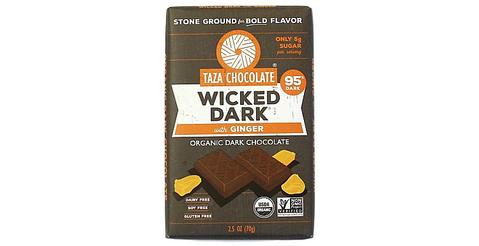
Ginger and chocolate may seem like an odd couple, but you’ll change your mind when you taste this. With five grams of added sugar and a fruity bouquet, this bar doesn’t disappoint.
Shop now: Taza Wicked Dark Chocolate with Ginger (95 percent), $45 for 10-pack
10. UnReal Dark Chocolate Almond Butter Cups, $32 for a 6-pack
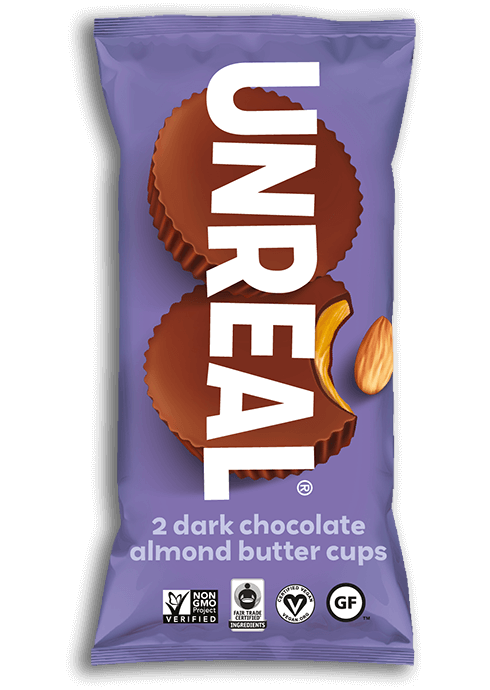
For a nut butter-chocolate collaboration, UnReal has you covered. The brand’s Fair Trade chocolate combines with almond butter for a new take on timeless flavor duo.
Shop now: UnReal Dark Chocolate Almond Butter Cups, $32 for a 6-pack
Oh hi! You look like someone who loves free workouts, discounts for cult-fave wellness brands, and exclusive Well+Good content. Sign up for Well+, our online community of wellness insiders, and unlock your rewards instantly.
Sign Up for Our Daily Newsletter
Get all the latest in wellness, trends, food, fitness, beauty, and more delivered right to your inbox.
Got it, you've been added to our email list.

